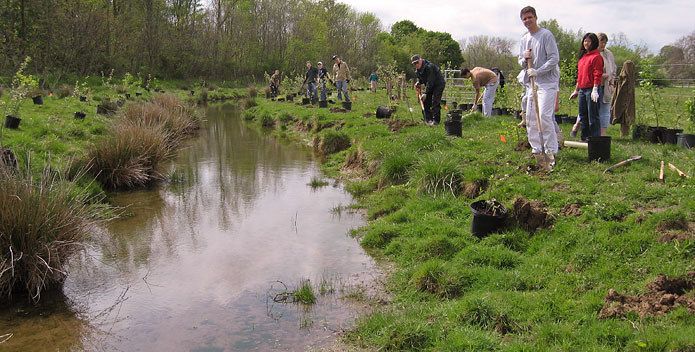The following first appeared in the Charleston Gazette Mail.
Thank you, to the Gazette-Mail, for the story about how the federal government is partnering with private landowners to restore trout streams in West Virginia ("Public-private venture restores trout habitat in upper Potomac River Watershed," June 17). Republicans and Democrats alike have supported these types of conservation programs.
Traditionally, Congress has understood federal tax dollars can be used like investments. For every dollar the feds invest, local groups contribute up to $4. Projects funded by this money create jobs.
I have seen firsthand how these programs can clean up a local farm stream and employ local residents. I have been organizing these kinds of conservation projects for a decade with the Chesapeake Bay Foundation.
Readers should know, however, that the Trump administration's proposed budget would dramatically reduce these federal investments. If accepted by Congress, these cuts would cripple efforts to restore trout and other wildlife in West Virginia.
For instance, the proposed budget would cut funding for the U.S. Fish and Wildlife Service by more than 14 percent. The brook trout program featured in the article is run out of that office.
And a similar program, the Regional Conservation Partnership Program, managed by the U.S. Department of Agriculture, would be eliminated. President Trump also has proposed eliminating all funding for the Chesapeake Bay Program.
President Trump has argued that local governments and communities in West Virginia should pay for these sorts of programs on their own, despite the fact that we all pay federal taxes. But federal dollars for some of these programs already were cut 75 percent in 2015.
It's doubtful local citizens can afford to make up these major cutbacks on their own. Congress will decide the fate of all these programs this summer. We hope wisdom prevails.



